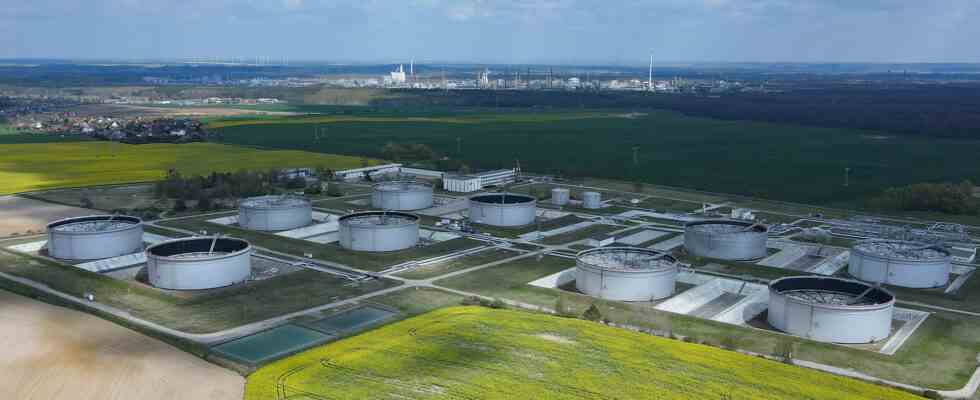Status: 05/02/2022 10:37 a.m
The EU energy ministers are discussing how to deal with rising energy prices today. In addition to the German oil embargo proposal against Russia, many countries are bringing price brakes into play – but they can hardly be financed in the long term.
Russia is using energy as a weapon, Russia is using it to blackmail Europe, and Russia will get an answer. These are the statements that are making the rounds in Brussels ahead of today’s meeting of European energy ministers. However, it is unclear exactly what the answer will be.
German Foreign Minister Annalena Baerbock has brought up a joint oil embargo against Russia – but very few, at least in Europe’s capitals, really want to go without oil and gas supplies from Vladimir Putin’s country.
Apparently, some are quite concerned that Putin’s demand that his energy be paid for in Russian rubles instead of euros or dollars does not lead to the gas being turned off. Moscow accuses Poland and Bulgaria of exactly that. As a result, both countries have not received any gas from Russia since last week. However, the member states are not actually allowed to pay in rubles because that would undermine their own European sanctions.
What to do against the rise in prices?
However, there are rumors that some would try to do it anyway. There was talk of Austria, for example. However, Vienna has denied it – and EU Commission spokesman Eric Mamer made it clear once again that the matter is clear: “The member states are responsible for compliance with the sanctions. If we find that some of them are not behaving in accordance with the rules, then we have measures in place at EU level to ensure that commitments are met,” he said.
A clear message from Brussels. So far, however, this has not been necessary – everything else is pure speculation. On the other hand, looking at the energy prices, which are still trending upwards, is no speculation. Should further deliveries from Russia actually cease, the upward trend in prices should accelerate further. What to do?
With regard to an EU response strategy, Italy’s Prime Minister Mario Draghi spoke of the “spirit of the pandemic” that he would like for it. According to the motto: Europe tackles it together. So far that hasn’t been the case. Many European countries have launched their own relief packages for their population – in Germany, for example, the energy tax on fuel will be reduced for three months. Austria is expanding tax breaks for commuters, France is limiting the increase in electricity prices to a maximum of four percent, Belgium is reducing VAT on electricity and gas, and Spain and Portugal are putting a state-financed cap on energy prices. In Denmark, on the other hand, only households with a particularly low income receive grants.
Hard to finance in the long run
Despite all the differences, these steps have one thing in common: they can hardly be financed in the long term, say economists. Nevertheless, the EU wants to launch a sixth package of sanctions against Russia – and that should also be about oil imports from Russia. Which should drive world energy prices higher – and possibly not even to Russia’s detriment.
“There is at least the possibility that a gradual reduction in imports will be overcompensated by the higher prices, so that Russia may end up doing better, at least in the short term,” says Guntram Wolff from the Brussels think tank Bruegel. Nobody in Brussels wants that. It is likely to be difficult deliberations today for Europe’s energy ministers.

